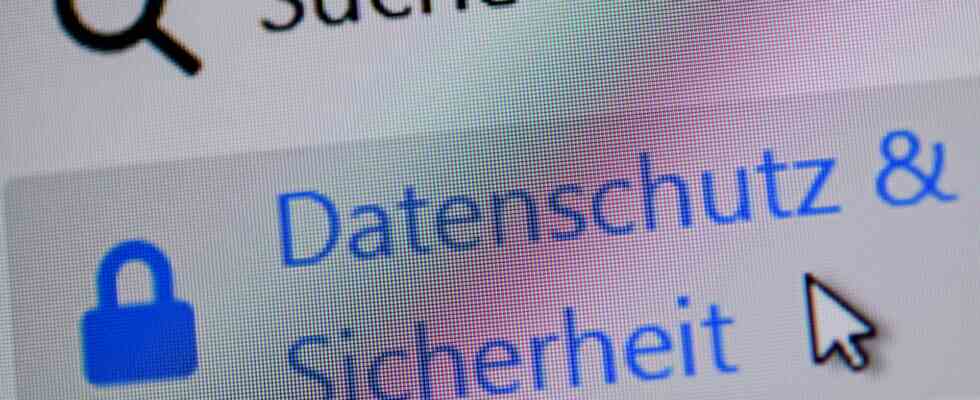Status: 03/25/2022 2:57 p.m
In 2020, the ECJ overturned an agreement that involved the transfer of personal data to corporations like Facebook. Now the EU and the USA have agreed on a new agreement. Details are not yet known.
The EU and the USA have agreed in principle on a new data protection agreement. This should regulate the transfer of personal data to US digital companies. Neither the EU nor the US side gave details of the new agreement. However, like two of its predecessors, the new agreement could also be legally challenged due to allegations of spying.
US President Joe Biden welcomed the agreement in Brussels. The agreement with the EU underlines the common interest in the protection of privacy and legal certainty for companies. “This will enable predictable and trustworthy data traffic between the EU and the US,” said European Commission President Ursula von der Leyen. The protection of privacy and civil liberties is guaranteed.
ECJ did not see a guaranteed level of protection
The European Court of Justice (ECJ) declared the previous data protection agreement “Privacy Shield” null and void in July 2020. At that time, the judges complained that the level of data protection in the USA did not correspond to the standards of the EU. Specifically, it was about the transfer of data from European Facebook customers to the USA.
The court emphasized that the data exporter must check whether the rights of the data subjects enjoy an equivalent level of protection in the USA. The ECJ was particularly concerned about the far-reaching possibilities for US secret services to access European data.
“Legal certainty restored”
As a result, there was great legal uncertainty for companies when transferring data between the USA and the EU. The Facebook group Meta has been warning since autumn that the online network and Instagram in Europe will probably have to be discontinued if there is no successor plan.
Accordingly, the industry association Business Software Alliance welcomed the basic agreement, as it will create legal certainty. The US Association for the Computer and Communications Industry (CCIA) declared that “legal certainty for companies will be restored”.
Schrems does not rule out lawsuits
The Austrian data protection activist Max Schrems, on the other hand, is less euphoric. In 2015, he successfully challenged the then “Safe Harbor” agreement before the ECJ. The “Privacy Shield” was created in 2016, but Schrems was able to overturn it before the EU’s highest court four years later.
Schrems’ data protection organization Noyb complained that this was only a political announcement and that a specific text was still pending. If the new agreement is not in line with EU law, Noyb or another group will probably challenge this too.

